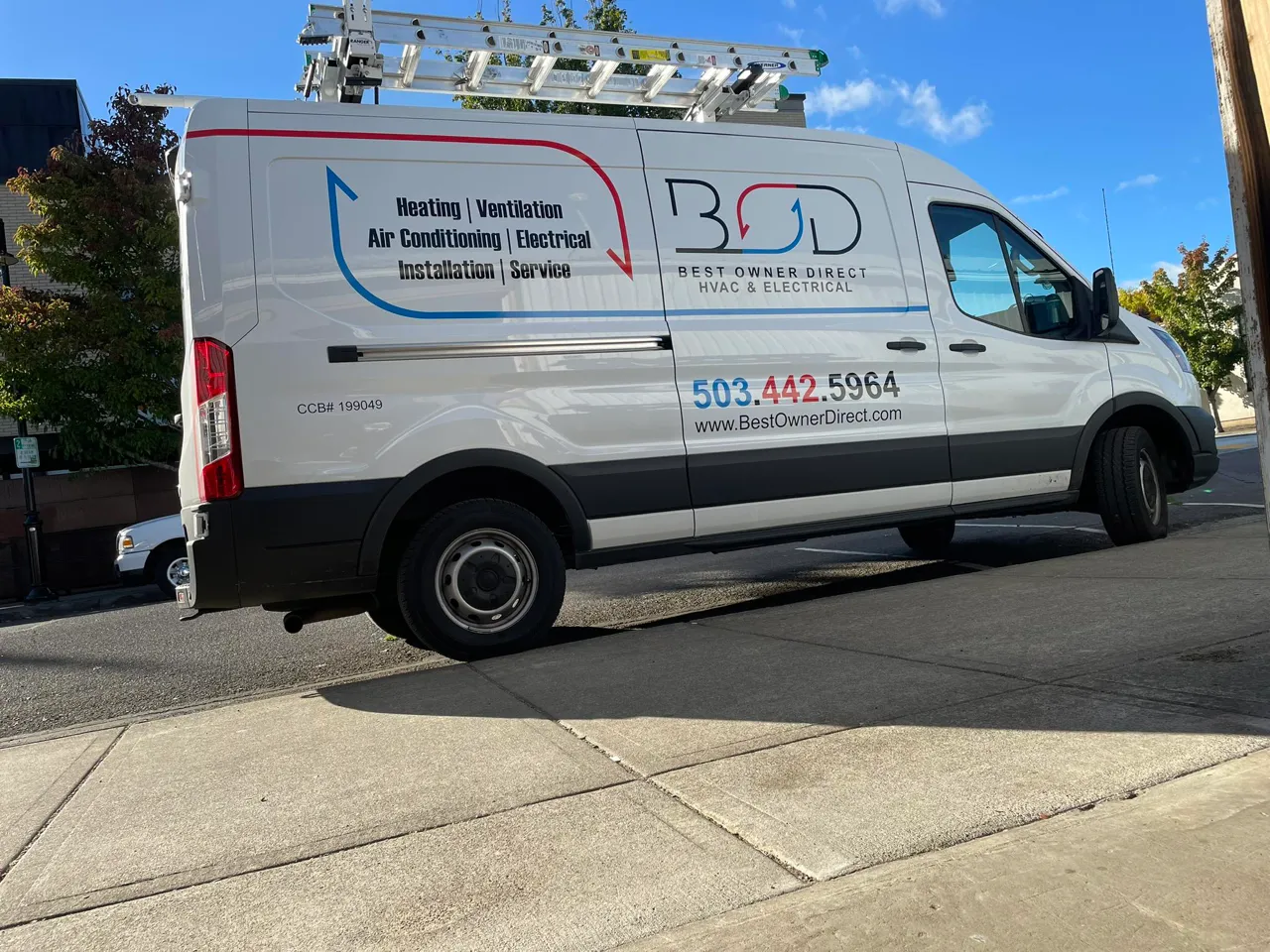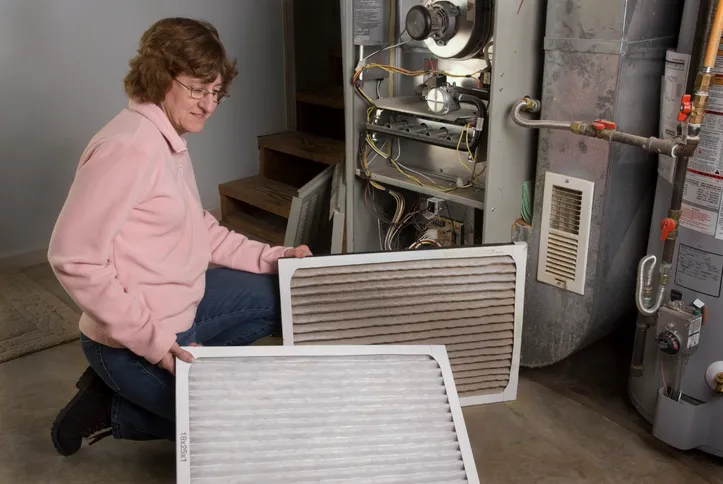Menu
Furnace Tune Up in Tigard, OR
Prepare your heating system for winter with a furnace tune-up in Tigard, OR. Best Owner Direct HVAC & Electrical ensures efficiency. Schedule service now!

Keeping your furnace serviced is one of the most effective ways to protect comfort, safety, and home energy costs in Tigard, OR. A professional Furnace Tune Up Tigard Or inspects, cleans, and adjusts critical components so your heating system runs more efficiently, reliably, and safely during our cold, wet Pacific Northwest winters. This page explains what a thorough tune-up includes, common issues seen in Tigard homes, how technicians diagnose problems, and the benefits of regular maintenance.
Why a Furnace Tune Up Matters in Tigard, OR
Tigard’s cool, damp winters and seasonal temperature swings put extra stress on furnaces. Moisture can accelerate corrosion, older gas furnaces may accumulate soot and debris, and clogged filters or ducts reduce airflow in homes with tighter insulation. A regular tune-up:
- Restores heating efficiency to lower monthly energy bills
- Reduces the chance of mid-winter breakdowns when you need heat most
- Detects safety risks such as combustion problems or carbon monoxide leaks
- Extends the useful life of your furnace by addressing wear early

Common furnace tune up issues in Tigard homes
Technicians performing a Furnace Tune Up Tigard Or frequently find the following problems:
- Dirty or clogged air filters limiting airflow and increasing run time
- Sooted burners and flame sensors causing ignition failures or poor combustion
- Weak pilot lights or intermittent electronic ignition problems
- Worn blower motors, belts, or bearings that increase noise and reduce airflow
- Thermostat calibration drift leading to uneven temperatures and short-cycling
- Loose electrical connections and failing capacitors that cause intermittent operation
- Corrosion or leaks in the heat exchanger or venting in older units, which can create safety concerns
What a professional tune-up covers
A comprehensive Furnace Tune Up Tigard Or typically includes the following tasks. Each step is performed to industry standards to ensure efficiency, performance, and safety:
- Visual inspection of the furnace cabinet, burner area, and venting for corrosion, blockages, or leaks
- Burner cleaning and adjustment to ensure complete combustion and proper flame pattern
- Pilot assembly or ignition system check and testing of ignition reliability
- Inspection and cleaning of the flame sensor and heat exchanger surfaces
- Combustion and CO check when applicable to verify safe combustion and low CO levels
- Lubrication of moving parts such as blower motor bearings and fan assemblies when serviceable
- Blower and motor inspection, cleaning of fan blades, and belt condition check or replacement recommendations
- Air filter inspection and replacement guidance; replacement done if included in the service
- Thermostat calibration and control verification to correct differential and set point accuracy
- Safety controls testing including high limit switches, pressure switches, and rollout sensors
- Electrical inspection: tighten connections, check capacitors and relays, and inspect wiring integrity
- Ductwork and airflow check to identify restrictions that reduce system efficiency
Diagnostic process: what technicians measure and why
During a tune-up, technicians use a combination of visual checks and measurements to diagnose problems precisely:
- Combustion analysis: measures efficiency and ensures safe fuel burning
- Carbon monoxide monitoring: verifies safe indoor air and identifies leaks
- Gas pressure check: confirms correct fuel delivery to burners
- Static pressure and airflow readings: determine if ducts or blower performance are restricting heating
- Electrical system checks: identify failing components that could cause outages or poor operation
These diagnostics allow the technician to prioritize repairs that affect safety and reliability, and to recommend maintenance that improves efficiency.
Typical repairs discovered during tune-up and next steps
A tune-up often reveals minor repairs that prevent bigger failures. Common corrective actions include:
- Replacing or cleaning air filters and flame sensors
- Cleaning burners and adjusting gas valves
- Replacing worn blower belts or capacitors
- Tightening electrical connections and replacing failing relays
- Recalibrating thermostat or replacing failing thermostats for better control
Technicians will categorize findings as immediate safety or reliability issues versus recommended future maintenance items. Immediate safety issues, such as signs of heat exchanger cracks or unsafe venting, warrant prompt attention and replacement planning.
When to schedule a tune-up and how often
- Annual tune-up before the heating season is recommended for most Tigard homes, ideally in early fall. This ensures your furnace is ready before colder weather arrives.
- Homes with heavy use, older furnaces, or known performance issues may benefit from biannual checks.
- Schedule a tune-up sooner if you notice decreased heat output, unusual odors, increased fuel bills, frequent cycling, or any alarm from a carbon monoxide detector.
Benefits you’ll see after a professional tune-up
- Improved energy efficiency and lower utility bills because the furnace burns fuel more cleanly and runs less frequently
- More consistent home temperatures and fewer cold spots
- Fewer emergency repairs and a longer expected lifespan for the system
- Safer operation with reduced risk of carbon monoxide exposure or combustion-related hazards
- Better indoor air quality when filters and blower systems are cleaned and airflow is optimized
Maintenance tips for Tigard homeowners between tune-ups
- Change or clean filters every 1 to 3 months during the heating season
- Keep returns and vents unobstructed to maintain good airflow
- Clear outdoor vents and combustion air intakes of debris and plant growth
- Listen and watch for unusual sounds, odors, or pilot/ignition behavior and have issues checked promptly
- Keep the area around the furnace clean and free of stored items that could restrict airflow or create a fire hazard
A professional Furnace Tune Up Tigard Or is a proactive investment in comfort, safety, and long-term savings for Tigard homes. Regular tune-ups catch small problems before they become costly failures and help your system perform reliably through wet Oregon winters.
Experience Reliable Comfort and Lasting Peace of Mind
Keep your home safe, efficient, and ready for the season with expert furnace care from Best Owner Direct HVAC & Electrical. Don’t wait for small issues to become costly repairs—schedule your tune-up today and enjoy dependable warmth all winter long. Reach out to our friendly team now through our contact page to book your service.


